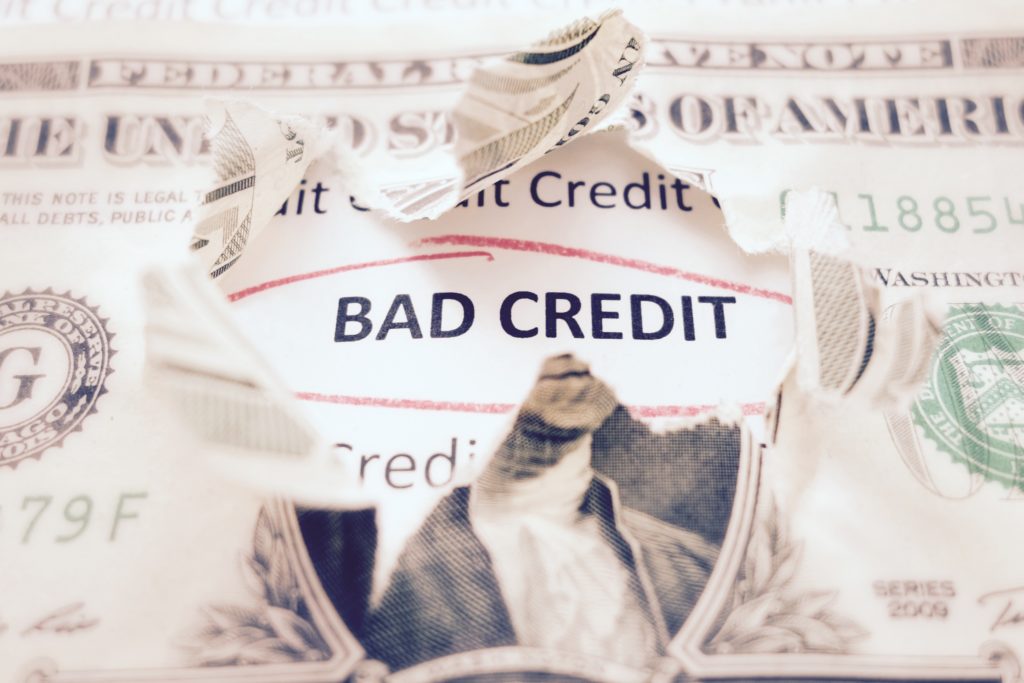
Having bad credit can really make life difficult. You will have less financial options, especially if you find yourself in a bind. The good news is that you can avoid having a bad credit score altogether. When you create good financial habits at a young age, you are sure to not only avoid having bad credit, but you can expect to create a good credit score.
Here are 9 steps you can take to avoid a bad credit score.
Have an emergency fund
A great way to work towards avoiding bad credit is to create your own credit in the form of an emergency fund. This fund does not have to be created overnight, but it helps to contribute something each month towards it. The way an emergency fund helps you is simple. You only use this account for true emergencies in which you would have otherwise had to borrow money from family, a friend, or a lender. You should define what a true emergency means for you. A pet needing emergency surgery, your car breaking down or a personal medical expense are all great considerations for an emergency. Concert tickets, a vacation or a new outfit do not fit the bill of an emergency.
Only pay in cash
Another handy tip is to pay for things in cash. This ensures that you have enough to afford your purchase to begin with. Secondly, it really makes you consider your dollars in the physical sense. Some people have a much harder time making a purchase with physical cash in hand.
Can’t afford it? Don’t buy it
If everybody lived in a world where they could not buy something unless they could afford it upfront, then no one would have bad credit, and credit card companies would go out of business. Keep in mind, there is nothing wrong with a car payment or mortgage. Those are pretty typical debts to have, but even keeping those minimal is a good mindset to have.
Say ‘no’ to balance transfers
A slippery slope is to get crushed under so much credit debt that you keep on transferring your credit card balance to another card. You might think this is a smart move in order to avoid your payment due date, but unfortunately, you are wrong. The one reason you might want to transfer a balance is to move a balance into an interest-free credit card. This can be a smart move if your current card has a high-interest rate and you are drowning in it. Keep in mind, the new card will charge you a fee to move your balance over.
Always pay your balance, on time
If you do have a credit card, stick to the habit of paying your full balance each month and do it on time. Instead of working to just avoid bad credit, you are now working on improving your credit score. You always want to make your payment in full and on time each month. It gets super tough when you make the mistake of skipping (or missing a payment). If you can’t make the minimum this month, how will you pay double next month?
Avoid cash advances
Another clever trick that credit card companies offer is cash advances. It sounds good from the outside. Get some instant cash upfront and pay later. The bad news is that it can get out of control very quickly. This is a tactic you need to avoid altogether. If you can’t withdraw from your checking account or you do not have cash, then you simply do not have the ability to use this money.
Don’t become a lender
An even worse way to ensure you are going to wrack up some bad credit is to become a lender a co-signer for someone you know. Your best bet is to never, ever lend someone money unless you can afford to live without it ever being repaid. Do not lend cash, your credit card or your credit history.
Understand your credit terms
If you do not understand the ins and outs of your credit card, then you might be in for a rude awakening. You should always know the interest rate, if it is variable (and when it changes), your monthly minimum payment, credit line, and fees associated with your account. You want all of this information upfront before you even apply.
Limit yourself
Going hog wild on a shopping spree, booking that dream vacation, or handing out cash like candy is a surefire way to put you into financial trouble. If you really want to avoid bad credit, you want to limit yourself. Limiting means being responsible and choosing a budget, choosing to not spend what you can’t afford, and choosing to take care of yourself first.
Bottom Line
It can be easy to avoid bad credit and easy to get sunk under it. The best thing to do is not buy what you cannot afford and be diligent in your spending habits. When you know your limits, know your credit abilities, you can avoid bad credit at all costs.
